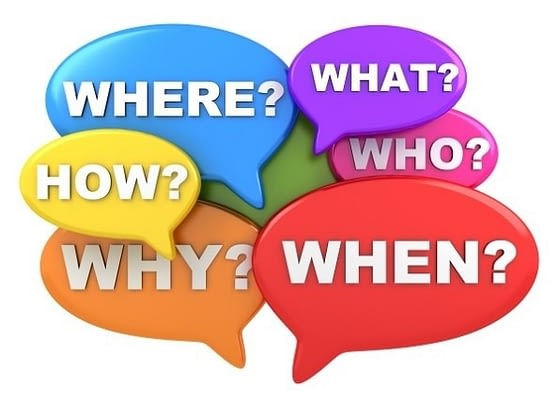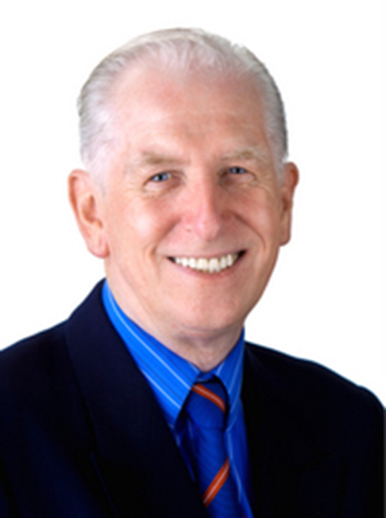What are the most important words that we should encourage students to use? In my view, Rudyard Kipling summed them up in his great poem called ‘I Keep Six Honest Serving-Men’.
He said that six words, which stimulate discussions, taught him all he knew. They are:

Case Example
I had the opportunity to work with some teachers at Springbrook State School in Queensland, Australia. The Principal invited myself and colleagues to conduct a class about the amazing people who set up the inaugural Australian colony called New South Wales, in 1788.
The students were aged between 8 and 11, and to help them learn about the situation, we gave them the above six words. In group discussions, we asked them to come up with questions that they would pose to people from that era.
Learning with Questions
So began a fascinating discussion. In the process, the students began to think about a range of issues….
These questions initiated involved discussions. Afterwards, the students reviewed what they had learned. Many interesting comments arose. In the process, it was clear the students had developed their ability to think. By using the six key questioning words, they had improved their skill in gaining and using information.
Amazing People and Questions
Looking at the lives of amazing people like Marie Curie, Albert Einstein, President Lincoln, Florence Nightingale, Dr Louis Pasteur and others, it is clear that their ability to think led them to break down barriers. Rather than taking the situation for granted, they asked fundamental questions and perceived ways of developing responses that advanced our understanding.
The Socratic Method is based on asking questions. Socrates, the ancient Greek philosopher, said that questions were the way to truth. But, they need to be put in a form that facilitates discussion, rather than in an accusing and judgmental way.

Questions and Achievements
In my research on the lives of amazing people, I have found that those who succeeded had the ability to ask questions and find answers that opened up new ways of looking at traditional ways of doing things. Many of these amazing people went on to make fortunes.
“Thinking is the hardest work there is, which is probably the reason why so few engage in it.” – Henry Ford.
In his research, Thomas Edison had done thousands of experiments that did not work. One of his team asked, why he continued. He responded that they had learned a great deal from the so-called failures and would soon find the right questions and the answers to create a light bulb. Today, we are the beneficiaries of his thinking and determination.

So, amazing thinkers had the courage to follow their curiosity. They not only asked questions, but took action to find the answers. They challenged conventional thinking.
Summary
So, what is it that we should focus upon in education?
Of course, we must teach students to read and write and to do mathematics. But, what is the point of having those skills, if they do not think beyond the proverbial? To become valued citizens, they need to look beyond the current situation and ask how we deal with difficult problems, such as fairness, equal opportunity, and the creation of a culture that respects people. To do that, we need all students to use the six key question words. Those will help them focus on gaining evidence and making sound judgments.
What should be the balance between instruction and discussion? Research shows that we are likely to retain our learning if we discuss facts and ideas, and have the opportunity to express our views. This case study shows how key ‘question words’, such as Kipling’s ones above, can facilitate such learning. But, WILL teachers allocate sufficient time to learning through conversation? The ‘question word’ ‘WILL’ is the seventh key ‘question WORD’ that can determine the answer.

Dr Charles Margerison, President and founder of Amazing People Worldwide, is a psychologist. He is also President of Amazing People Schools. Dr Margerison has consulted widely for major organisations in the fields of organisational and educational psychology. He was previously Professor of Management at Cranfield University, UK, and the University of Queensland, Australia. He founded Amazing People Worldwide in 2006 and is supported by a dedicated global team. He previously co-founded Emerald Publications and Team Management Systems and has authored more than 30 books. Dr Charles is also the creator of Can Do Kids Worldwide, a virtual music group that helps students learn about countries and cultures through music. He has also developed Imagineland, for early learners. You can follow him on LinkedIn.
For more information, please email info@amazingpeopleworldwide.com
Websites:



Copyright © 2021. Amazing People Worldwide.
All Rights Reserved.
This site is protected by reCAPTCHA and the Google
Privacy Policy and Terms of Service apply.



